|
Well, calls for Jockbrarian's long awaited Best Nonfiction Sports Books for Young Adults of 2017 are hitting fever pitch. Parents are refusing to leave Barnes and Noble until I give them some hot leads for book ideas for their teen sports lovers, and librarians are wondering what impactful 2017 sports titles they need to have on their wish lists. After careful studying, informal polling, and monitoring facial reactions, I have come up with a list of some 2017 (or late December 2016) books that I think are brilliant for any teenage sports fan. If your child enjoys sports and doesn't necessarily like reading, these books are certified by me, Jockbrarian, which should be good for at least something. The following books I have for you are a mix of every facet of sports and life. They are more than just stories of athletic achievement, they are stories of survival; they are stories of truly heroic athletes who have succeeded not only on the courts and fields, but in the game of life. These books should be added in every youth and adult library collection; they should be on the shelves at home. While they represent only some of the great sports writing that has come out this year, the titles will serve sports fans well and allow them to dig deeper into the lives of some amazing people. Books in the slideshow are linked to Amazon for you to look at--and they are in no particular order! Enjoy, and Merry Christmas!!
9 Comments
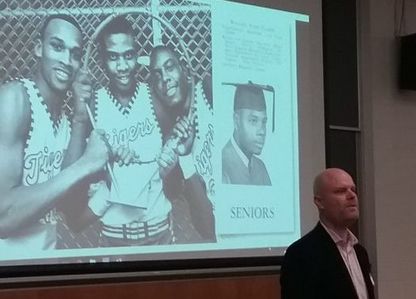 Athletes and performers sometimes view a gig in Wisconsin as a sentence. Most people hate winter. We're not really on the glitzy beaten paths of entertainers--so visitors can be rare. But by God, we do have the Green Bay Packers and Lambeau Field--and we are pretty damn nice people to boot! So when author Andrew Maraniss emailed me and said that he could incorporate a Germantown school visit into his trip to the Frozen Tundra, I jumped at the chance. Maraniss is the author of the book Strong Inside, a biography about Perry Wallace. (here's a link to my review) The fact that Andrew and I had a great common connection in high interest nonfiction sports literature was huge. But the fact that Andrew spoke the language that links all true Wisconsinites together--Packers, Badgers, Bucks, Brewers, and Brats--made him a slam dunk around here. So on Monday, December 4th, Maraniss stopped by Germantown High School for what would become a memorable visit. The first session I had set up with Andrew was a session with AP Seminar and AP US History students. The AP Seminar students, mostly juniors and seniors, have been working through social justice themes, and are ultimately charged with crafting their own research questions and conducting an in-depth investigation into their subjects. For this group, the focus of the presentation was "Writing for Justice," where Maraniss discussed not only his book, but drew from his articles from The Undefeated. Very specific to this reading was Andrew's piece on Frank Dowsing. The powerful message of Andrew's talk was that writing DOES matter, and that locating and researching these hidden figures can spark justice. Two things recently happened that I think truly drove this point home for the students. First, Perry Wallace passed away on December 1. The outpouring of tributes and discussion on social media about his death and the nods to the positive impact his story had on society was proof that Andrew's writing had made a profound impact on achieving a measure of justice. The second thing was the recognition of Frank Dowsing by Mississippi State at the Egg Bowl on November 23 for being the first black football player at the school. Maraniss credits at least some of this recognition to his story about Dowsing that had appeared a couple of months prior. Again, to the students, it was valuable evidence that writing matters. It affirmed to them that being a bystander only enforces the status quo, and that by being an "upstander" they can advance justice for those unfairly treated by society. The next part of the day brought Andrew to Kennedy Middle School to speak with the 7th and 8th grade classes. I was really wondering what type of miracle worker Maraniss was to take on 2 groups of 400 kids! When I taught middle school for a couple of years, they said we were either saints or fools. Andrew was truly a saint. To see the passion and demeanor he had around those kids, and the conviction he had in sharing Perry's story with them was special. Again, the message of being an "upstander" was the focus. IN an age of bullying, and AT an age when bullying primarily happens and hurtful biases formed, it was essential that Andrew's message of not being a bystander when injustice occurs be heard. Through Perry's example, that message resonated in a big way with the kids. A lasting image I have of the session is of a student approaching Andrew after the presentation saying he wanted to read the book. To find out later this was a student who never reads was even more remarkable. Ahh, the power of a story! As we left, I talked with Andrew about whether creating something that changes only one person's life is worth the effort. In teaching, they say that you need to focus on making an impact one student at a time. In the library, as I research and purchase books for my patrons, I consider this: If a book is only read by one person, but it profoundly impacts and changes their life, was it worth the money and effort? Yes, yes, and yes again. So, to Andrew (and all authors), I say again, never underestimate the value of your work no matter how many people end up buying the book. One life, one reader, is worth it. Our final stop of the day was back at the high school to speak to the varsity basketball team. After seeing Andrew speak to the UW-Madison Badger basketball team last year about his book, I wanted our athletes to see how being and athlete and an "upstander" were synonymous. As a coach, I've always felt athletes had a certain responsibility to hold themselves to a higher standard. Obviously, this year has been rocky when it comes to athletes and social issues. While we are seeing more athletes not afraid to take a stand for social justice, which is great, we are seeing just as many fans telling them to basically "shut up and play," which is not. Andrew's point to the student athletes was that sitting idle is not an option. At UW, players Nigel Hayes and Bronson Koenig spoke out for their causes. Andrew stressed: What if Perry Wallace had said nothing? Sure, it took great courage to live through the injustice. But it took even more courage for him to stand up and say what was happening in society was not acceptable. Sometimes, athletes have to use whatever elevated platform they may have to voice opinions and shed light on injustice to a larger audience. Sometimes it may not be popular. Perry Wallace didn't view any of this as an option, he viewed it as an obligation. Maraniss used the life of Wallace to underline the obligation of athletes to be "upstanders" and stand up for themselves, their teammates, classmates, school and personal beliefs. So, in a day when the death of Perry Wallace was fresh in the mind and heavy on the heart of his biographer Andrew Maraniss, the message of being an "upstander" was carried on through spoken word. Maraniss told the students that he was there talking to them because he knew that Perry would want it that way. There was no room for mourning on this day, with a message of justice and hero named Perry Wallace. Luckily, generations will always have a copy of Strong Inside as a reminder of these messages. Thanks, Andrew, for an amazing day! |
Archives
March 2023
Categories
Categories |
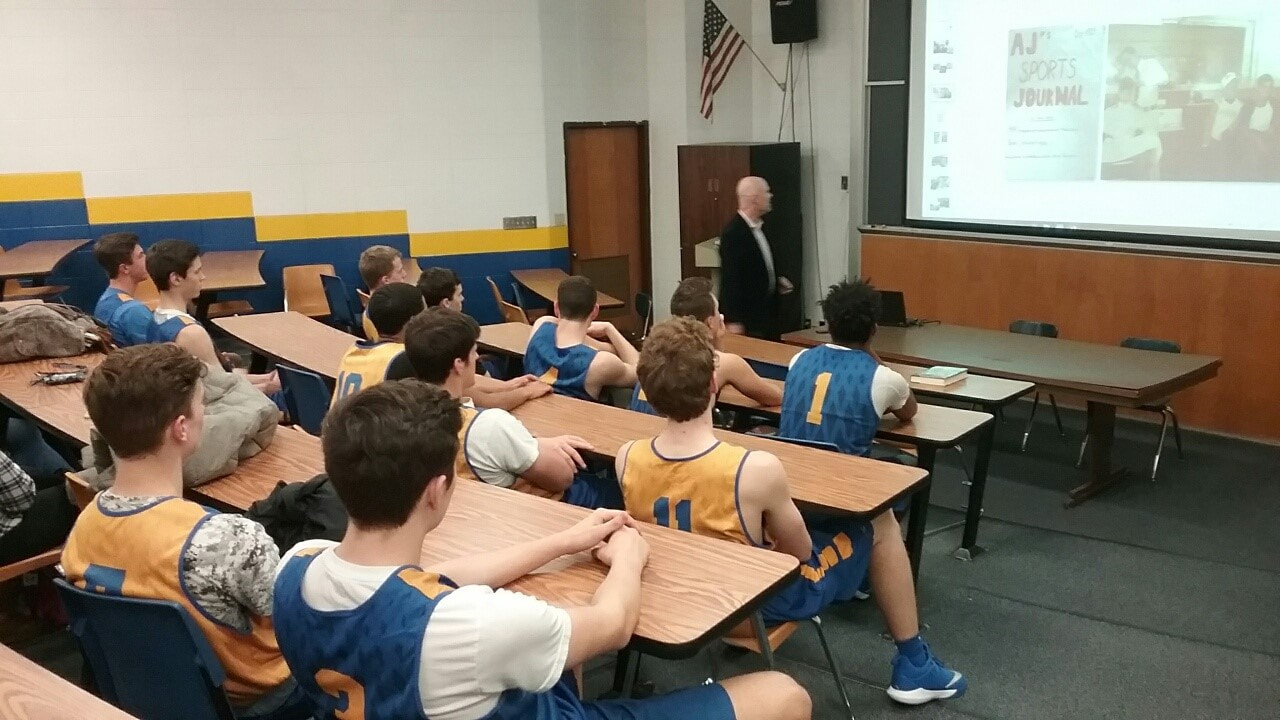
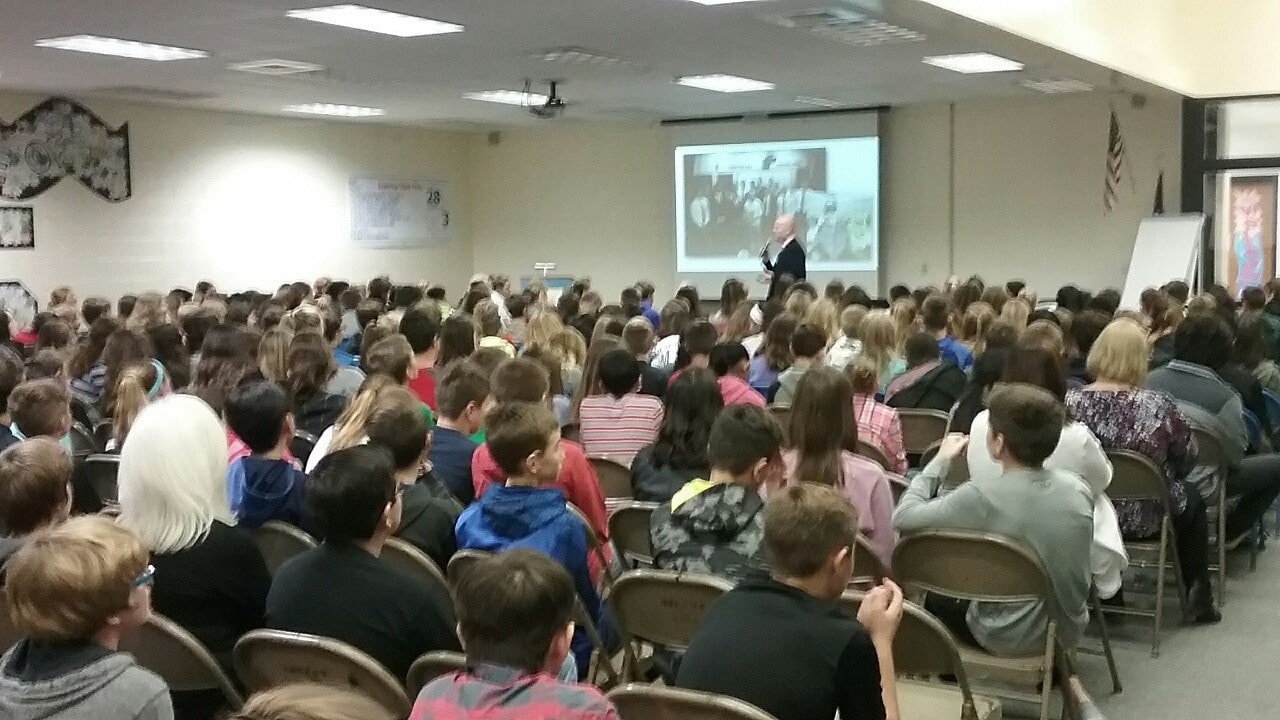
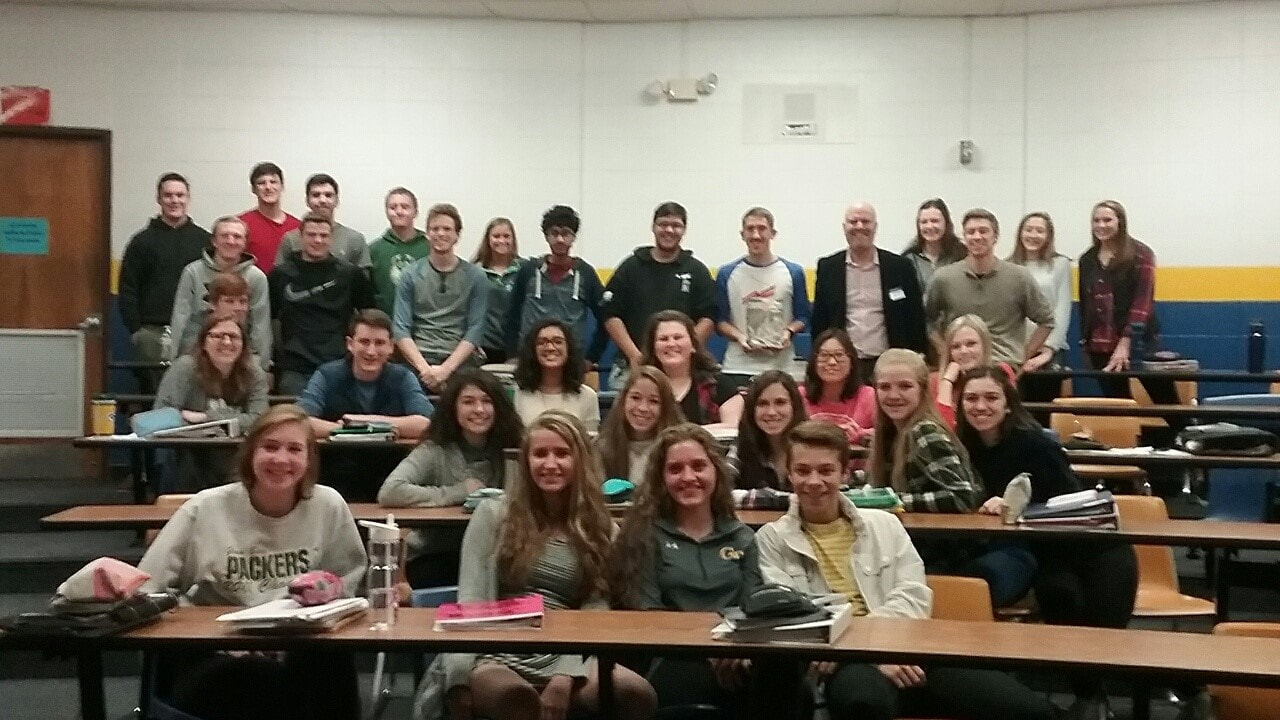
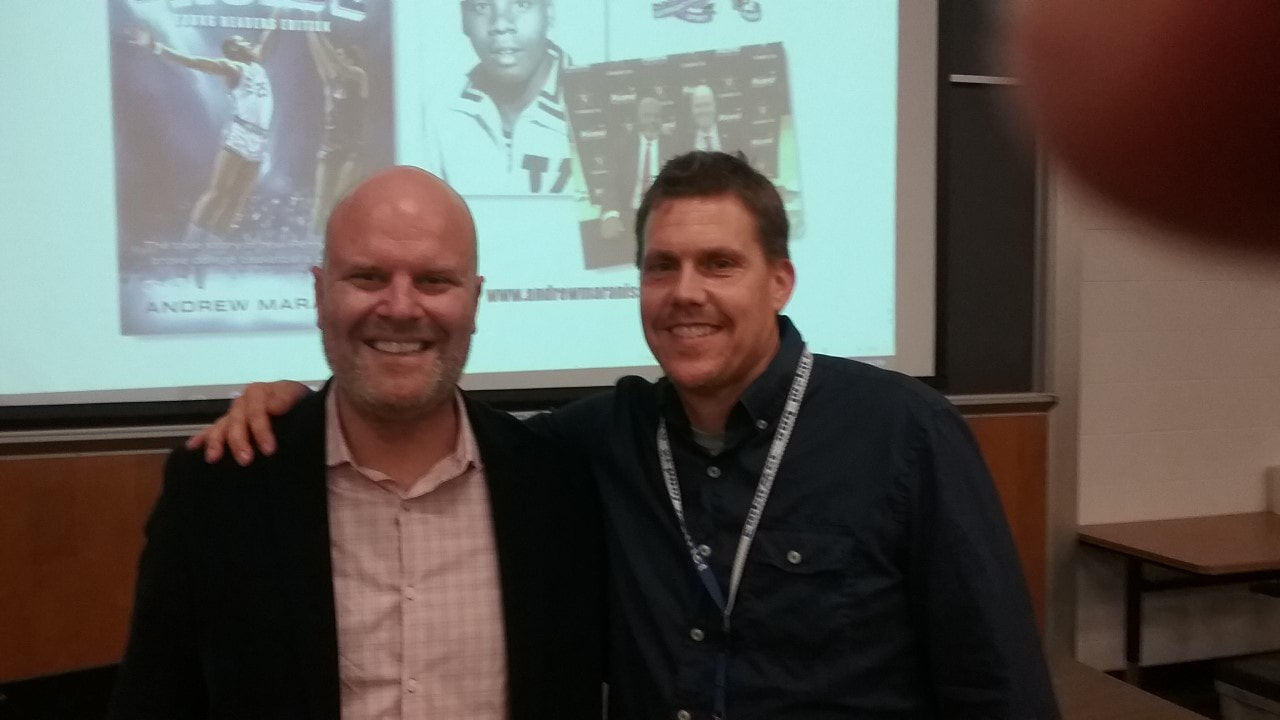
 RSS Feed
RSS Feed